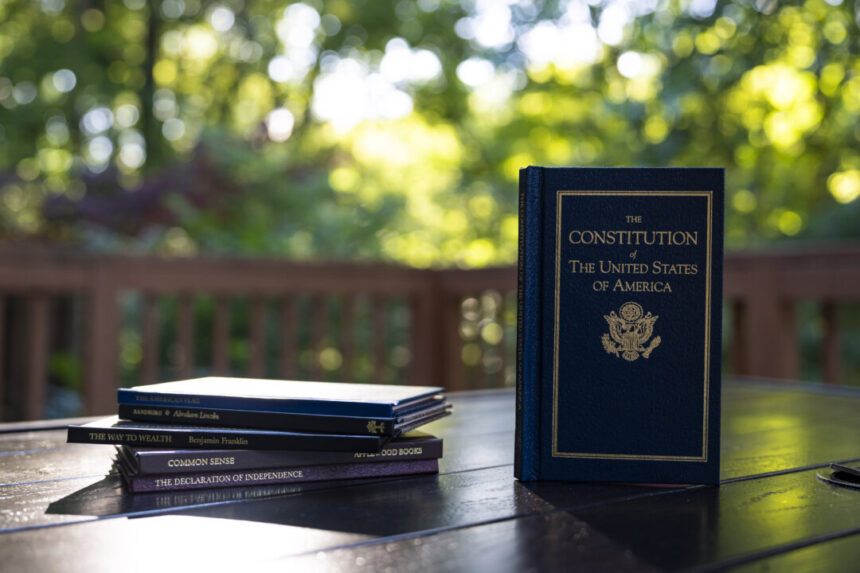It is evident that many of our national challenges could greatly benefit from a substantial amount of Constitutional wisdom.
Commentary
How did you spend Constitution Day on Sept. 17? At our house, we began with a family tradition—reading the Constitution aloud. Yes, the entire document. Surprisingly, it only takes about half an hour to cover all seven articles and the Bill of Rights.
Most individuals may not embrace this idea—thinking it’s a task meant for lawyers. However, here’s the secret: The Founding Fathers wrote this document for everyone, not just legal experts. They aimed for you, me, and your neighbor to understand its contents fully.
Reflecting on this challenge, Thomas Jefferson wrote, “Laws are made for men of ordinary understanding and should, therefore, be construed by the ordinary rules of common sense” (1823 Letter to William Johnson).
John Adams echoed a similar sentiment in 1765, stating that American settlers “knew government was a plain, simple, intelligible thing, founded in nature and reason, and quite comprehensible by common sense” (A Dissertation on the Canon and Feudal Law).
So, there it is. They crafted the Constitution in a straightforward manner for all of us.
What makes these 4,379 words so influential and compelling, provoking our interest and stirring our sense of duty?
It all boils down to survival—how to coexist harmoniously without tearing each other apart. Even before Plymouth, Jamestown, or Christopher Columbus, human history was marked by a long, arduous, and at times tragic struggle, with individuals fighting and scavenging for essentials like food, shelter, and control, punctuated by brief periods of order and peace. When the framers composed this document, they weren’t just establishing a framework for fair and just laws; they were proposing a new way of life that aimed to end the perpetual conflict. Their deliberate efforts aimed to initiate an era of growth and prosperity.
Their aspirations were clearly outlined in the Preamble. Looking at today’s world, do you believe they achieved their goals? “We the People,” they declared, hereby establish this Constitution to create a more perfect union, ensure justice, domestic tranquility, provide for the common defense, promote the general welfare, and secure the blessings of liberty to improve the lives of all.
James Madison, often referred to as the “Father of the Constitution,” recognized the challenge that had plagued humanity with prior governments: “In framing a government which is to be administered by men over men, the great difficulty lies in this: you must first enable the government to control the governed; and in the next place oblige it to control itself” (Federalist No. 51).
George Washington understood that maintaining a balance in government required fostering widespread knowledge among the populace about how the system operated: “Promote then, as an object of primary importance, institutions for the general diffusion of knowledge. In proportion as the structure of a government gives force to public opinion, it is essential that public opinion should be enlightened” (Farewell Address).
Knowledge and enlightened—this was Washington’s way of conveying that when we are unsure about how to address national challenges, we should seek knowledge to become enlightened.
Today, as we witness debates over executive power, states asserting their rights, or parents safeguarding their family values, it is evident that many of our national issues could benefit from a healthy dose of Constitutional wisdom. Reading and comprehending the Constitution is not merely an academic pursuit—it is a means to hold our leaders accountable and ensure our rights are respected. Have our leaders strayed from the path? Then it is time to replace them with individuals who grasp the rules.
However, we cannot make informed decisions if we do not familiarize ourselves with the instruction manual, the code of conduct, the operating instructions, the reference manual, the job descriptions outlined in our U.S. Constitution.
So, why read the Constitution every Sept. 17? The answer is simple. We read it to preserve our freedom.
Views expressed in this article are opinions of the author and do not necessarily reflect the views of The Epoch Times.
Please rewrite this sentence.
Source link







